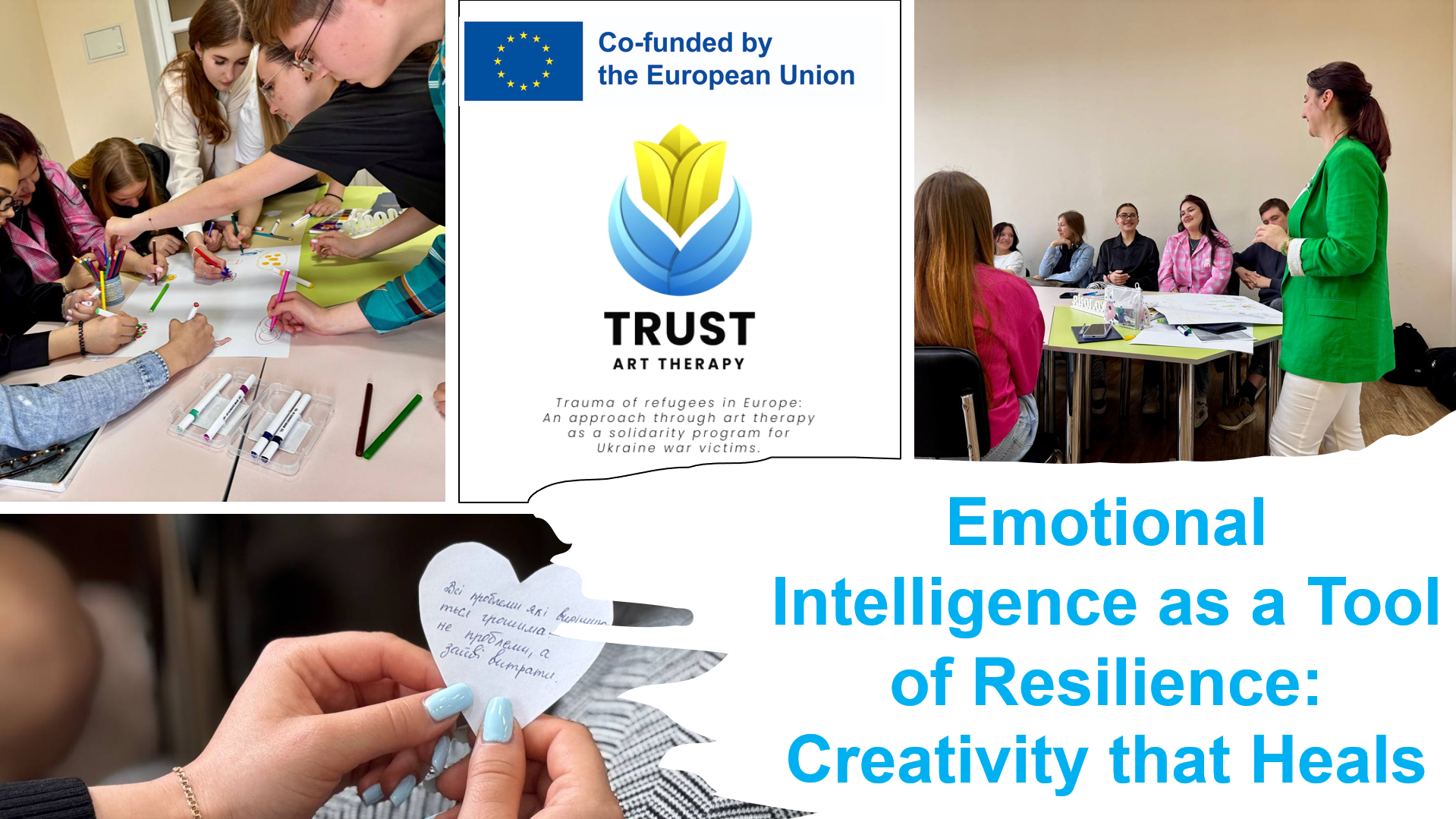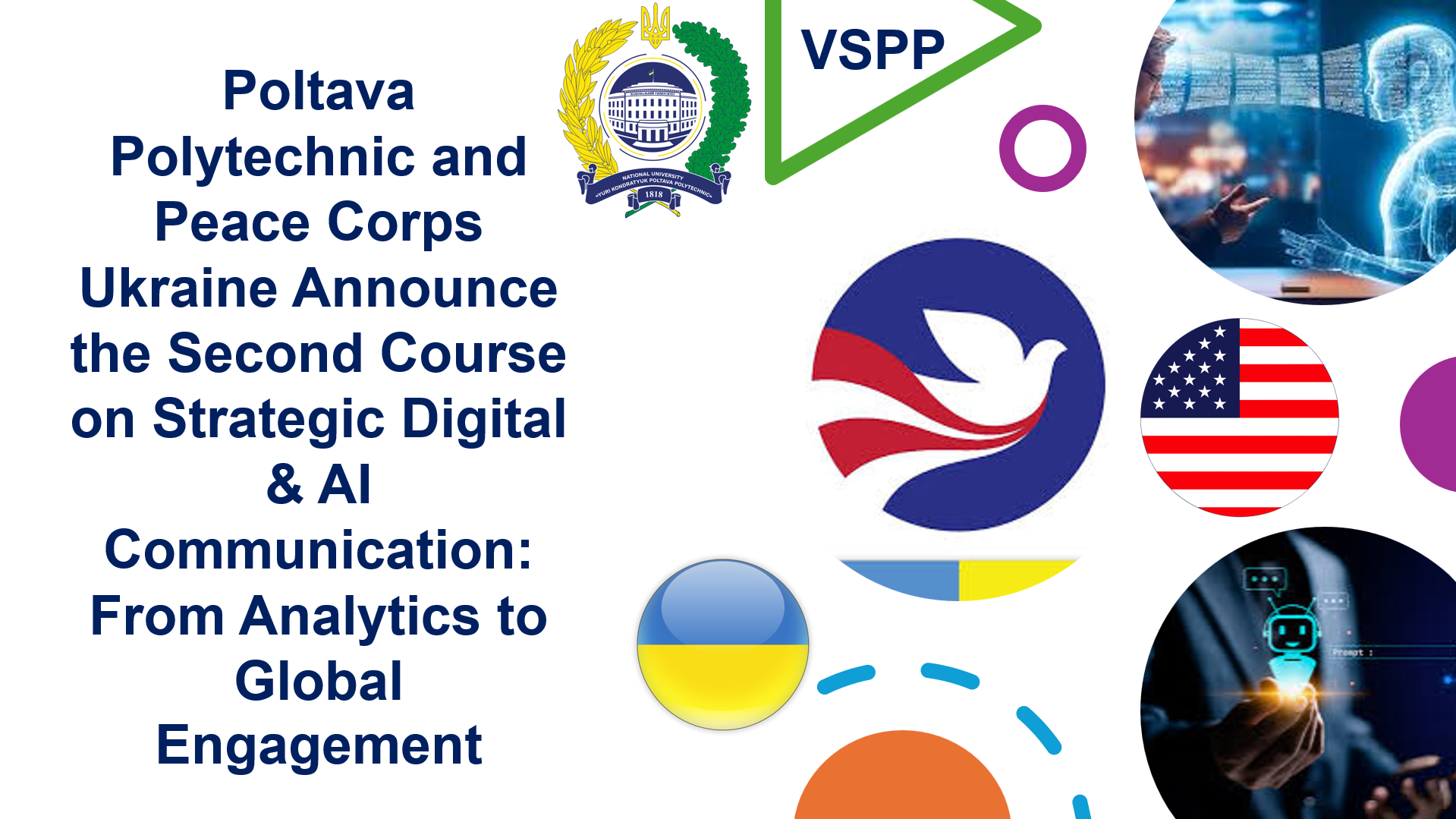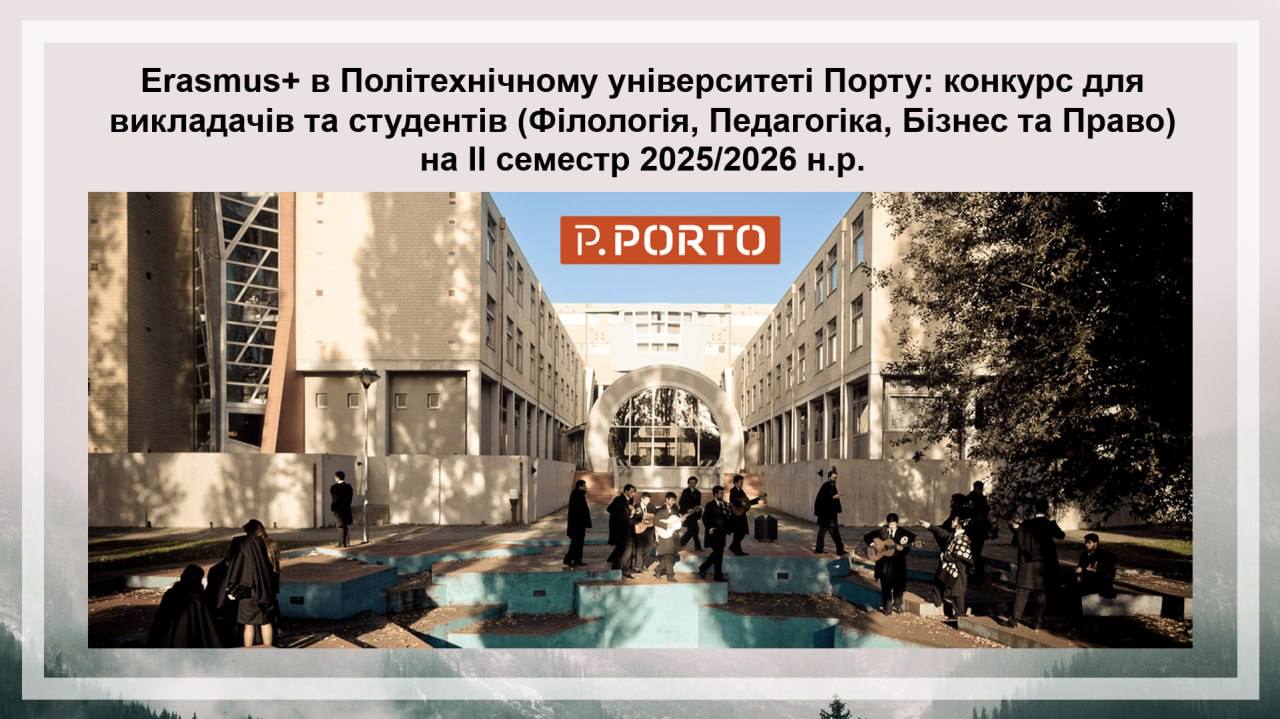On May 29, 2025, continuing the in-depth art therapy journey initiated during previous meetings, the team of the Department of Psychology and Pedagogy of the National University “Yuri Kondratyuk Poltava Polytechnic” conducted a new and significant event within the Erasmus+ KA220-ADU “TRUST” project.
This time, the focus of psychotherapeutic practice shifted to the development of emotional intelligence – a vital ability to recognise, understand, and effectively manage one's own emotions, as well as empathise with others. Today, emotional intelligence is increasingly viewed as the foundation of resilience – the inner strength to adapt to the most difficult challenges, overcome them, and continue to live a whole life without losing one’s integrity.
Against the background of prolonged instability, constant anxiety, and uncertainty that unfortunately accompany the lives of many internally displaced persons, such gentle, sensitive, yet deep personal work became particularly valuable. It allowed participants to find support within themselves when the external world seemed chaotic.
The meeting began with an immersion into the atmosphere of music therapy. Participants closed their eyes and listened to specially selected therapeutic music that promoted deep inner calm and harmony. Each melody acted as an emotional bridge, shifting the listener from anxiety to acceptance, from tension to full relaxation. Music therapy not only created a pleasant background for subsequent activities but also became the first key to internal dialogue and self-reflection. In this meditative silence filled with notes, each person could connect with their true “self” – free from external pressure, social roles, simply feeling and accepting themselves. This served as the foundation for further emotional work.
The next stage consisted of exercises designed to develop emotional self-reflection and differentiation skills. Participants learned to accurately identify their emotions, distinguish subtle nuances and intensities, and observe how these emotions influenced their bodily sensations, behaviour, and decision-making. This stage was critically important for the development of self-awareness – the first component of emotional intelligence.
Integrated elements of drama therapy gained particular resonance and therapeutic effect. These mini-scenes did not require acting skills from the participants – only sincerity and openness were needed. In the format of a “theatre of memories” or “dialogue with the inner self,” each participant had the opportunity to experience and externalise that part of themselves they usually hide from others or fear to acknowledge. Drama therapy enabled participants to observe their emotions from the outside, distance themselves from them, and experience the powerful support of the group, which created a safe environment. This allowed them to engage with painful memories or difficult emotions without fear of being overwhelmed. As the project psychologists emphasised, this is not about “playing on stage” – it is about deep honesty with oneself, which is the foundation of transformation and healing.
At the end of the event, everyone willing to do so shared their insights and discoveries, which is an essential element of group therapy and the consolidation of results. Valuable testimonials included phrases like: “For the first time, I was able to say my fear out loud”, indicating the overcoming of internal blocks; “I realised that anger is not always bad,” which reflects a rethinking and acceptance of complicated emotions as informative signals; and “I felt that I can be a support for myself,” showing the growth of inner strength and self-support. It is in such moments of individual reflection and group validation that resilience is born – the ability to remain whole, adaptive, and strong despite any external storms and challenges.
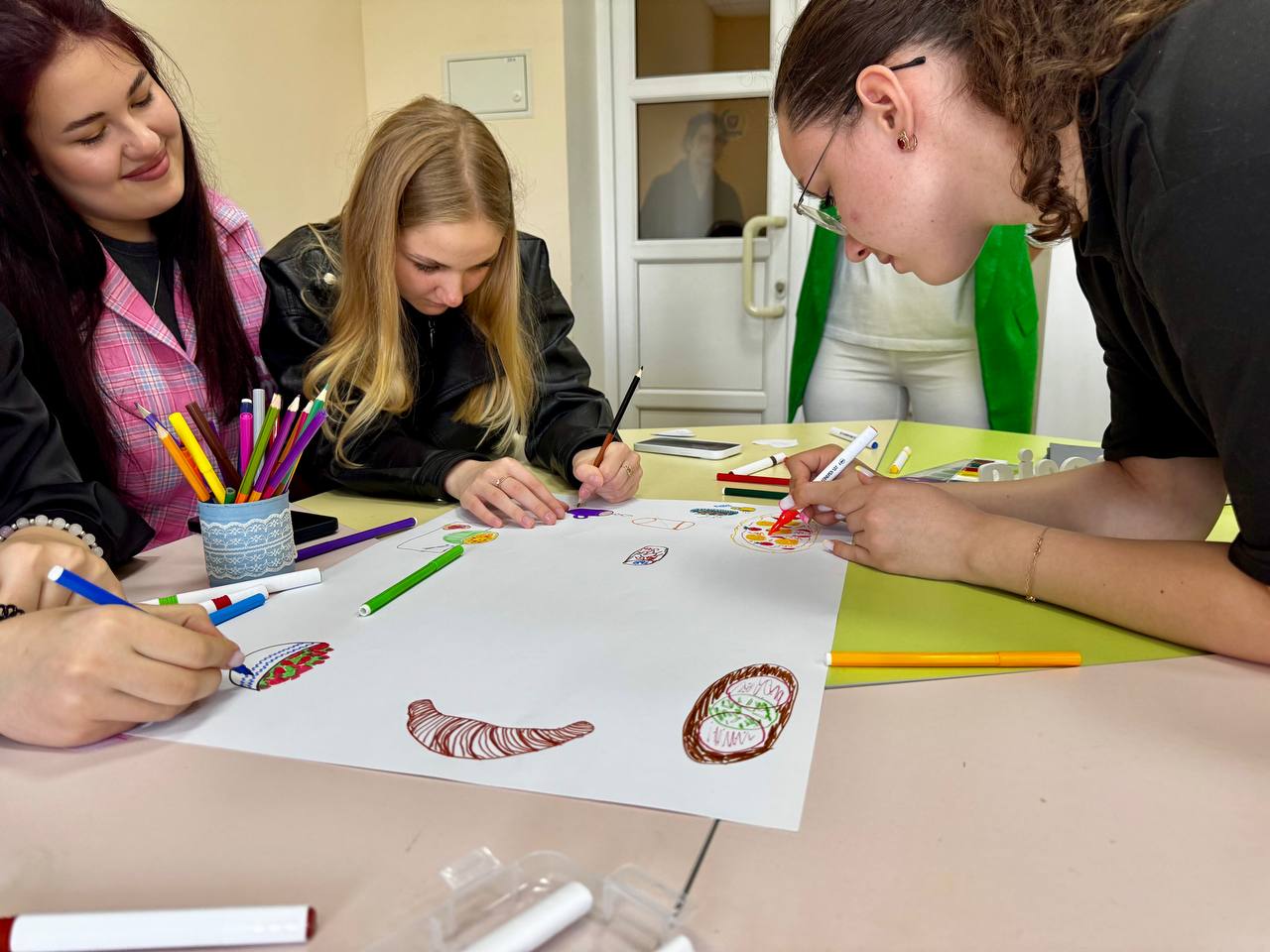
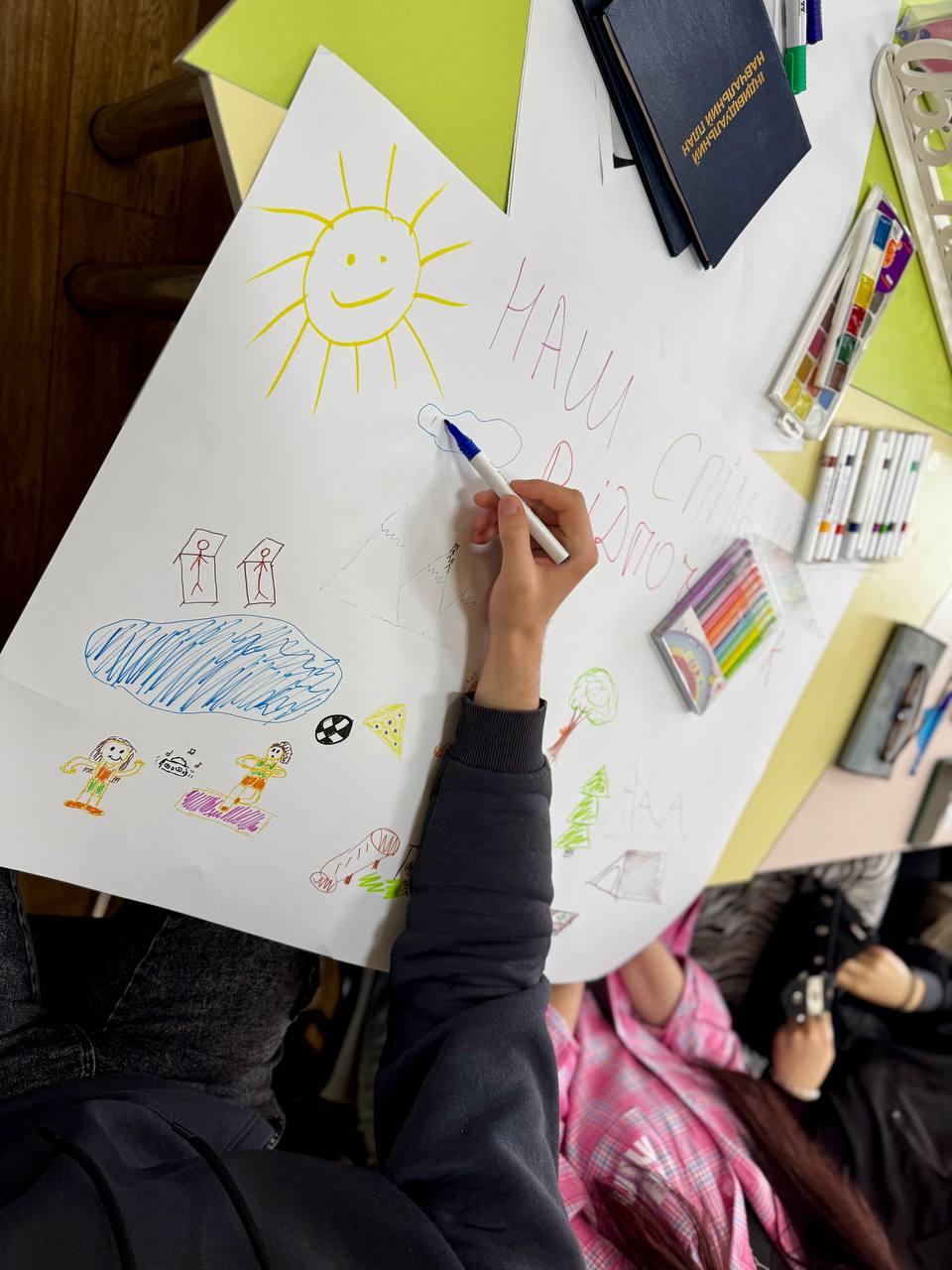
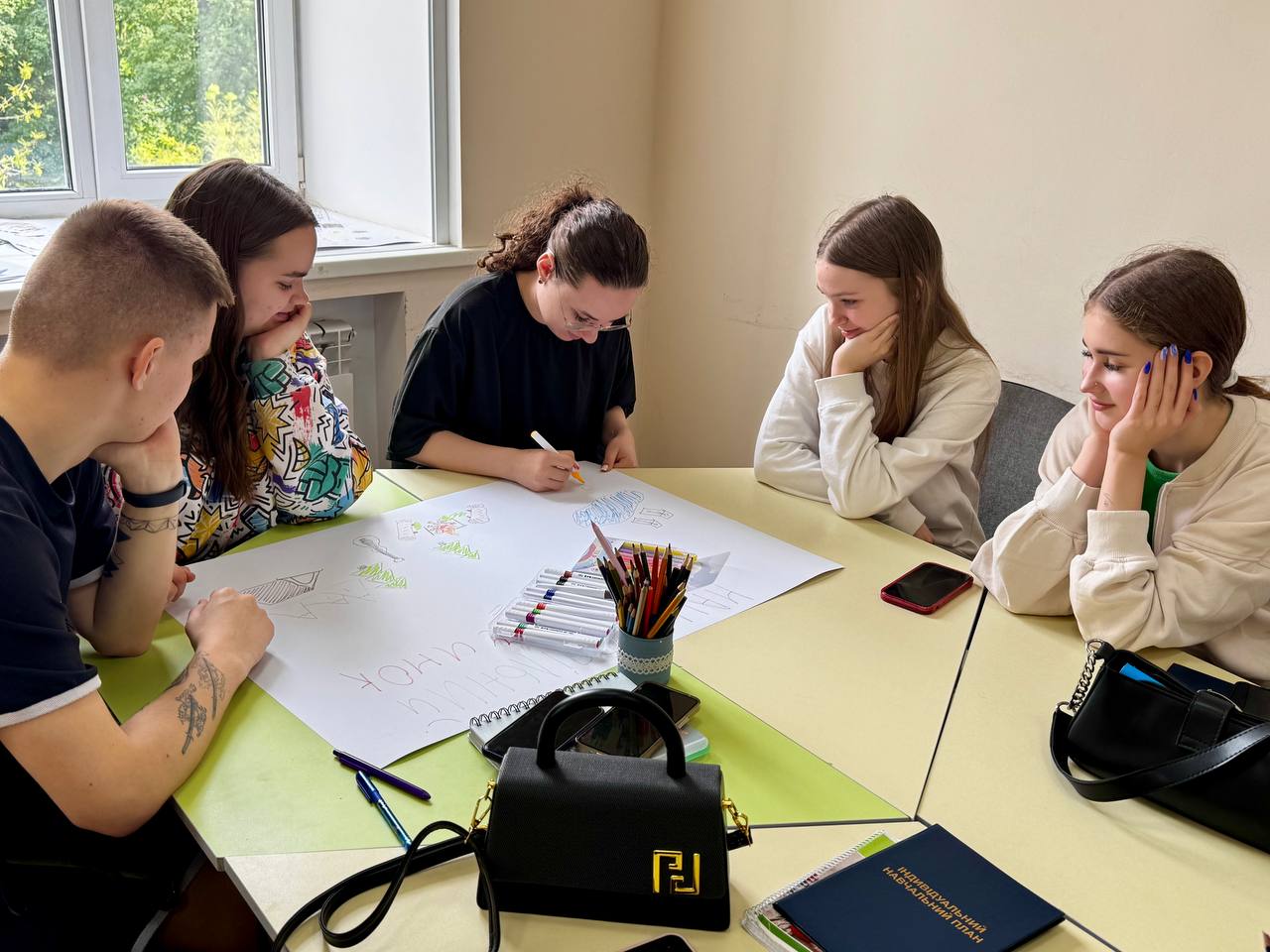
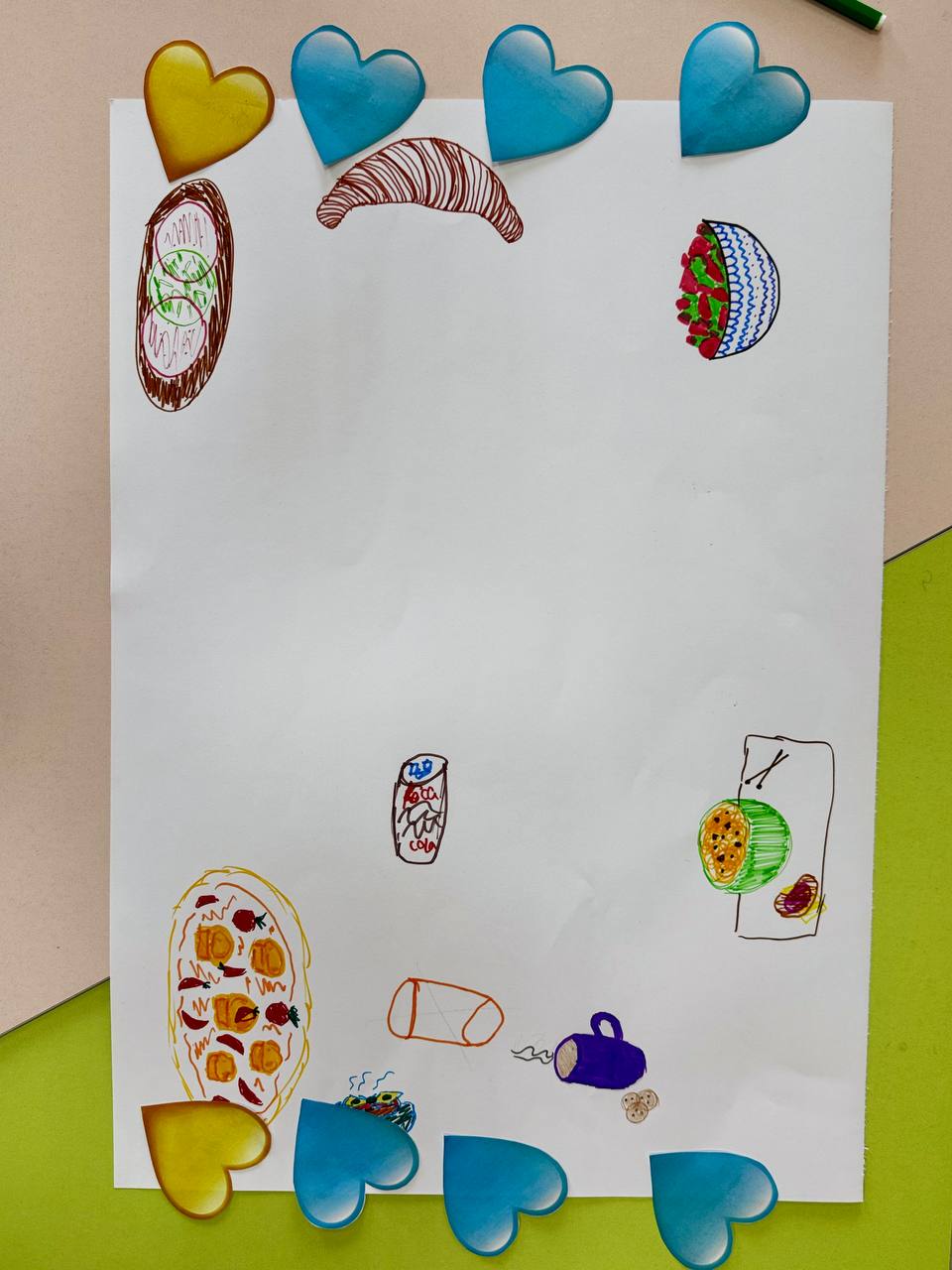
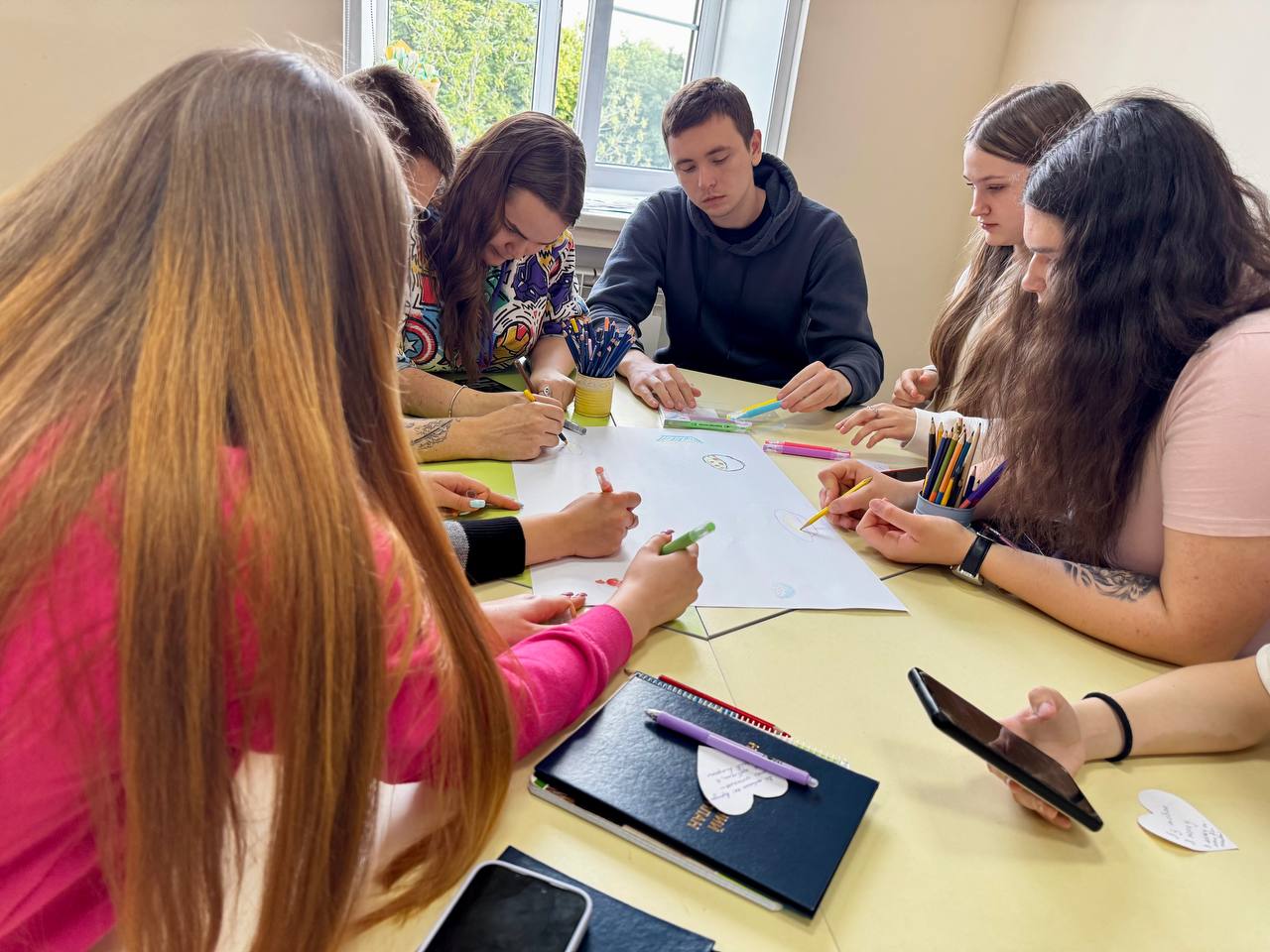
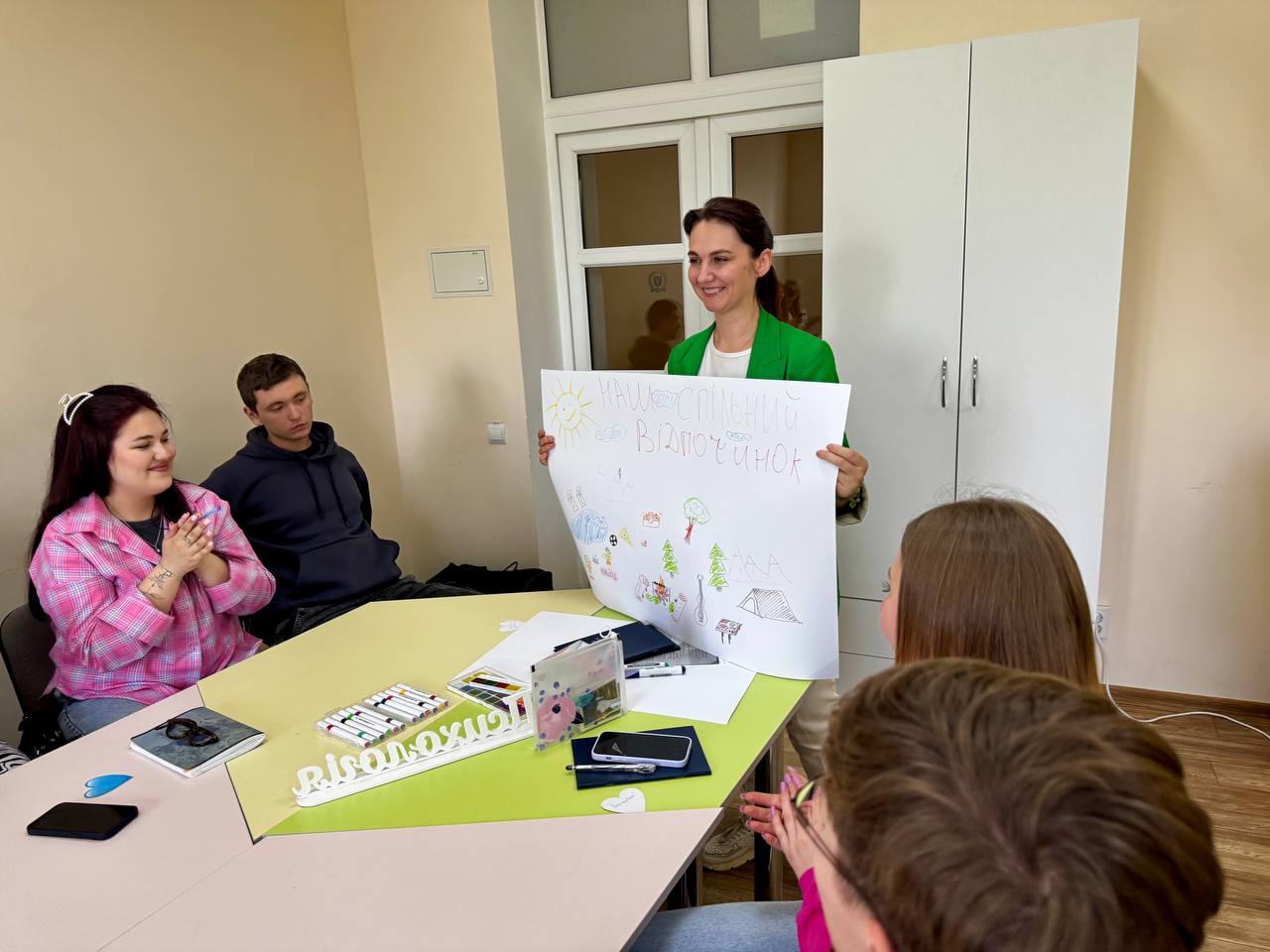
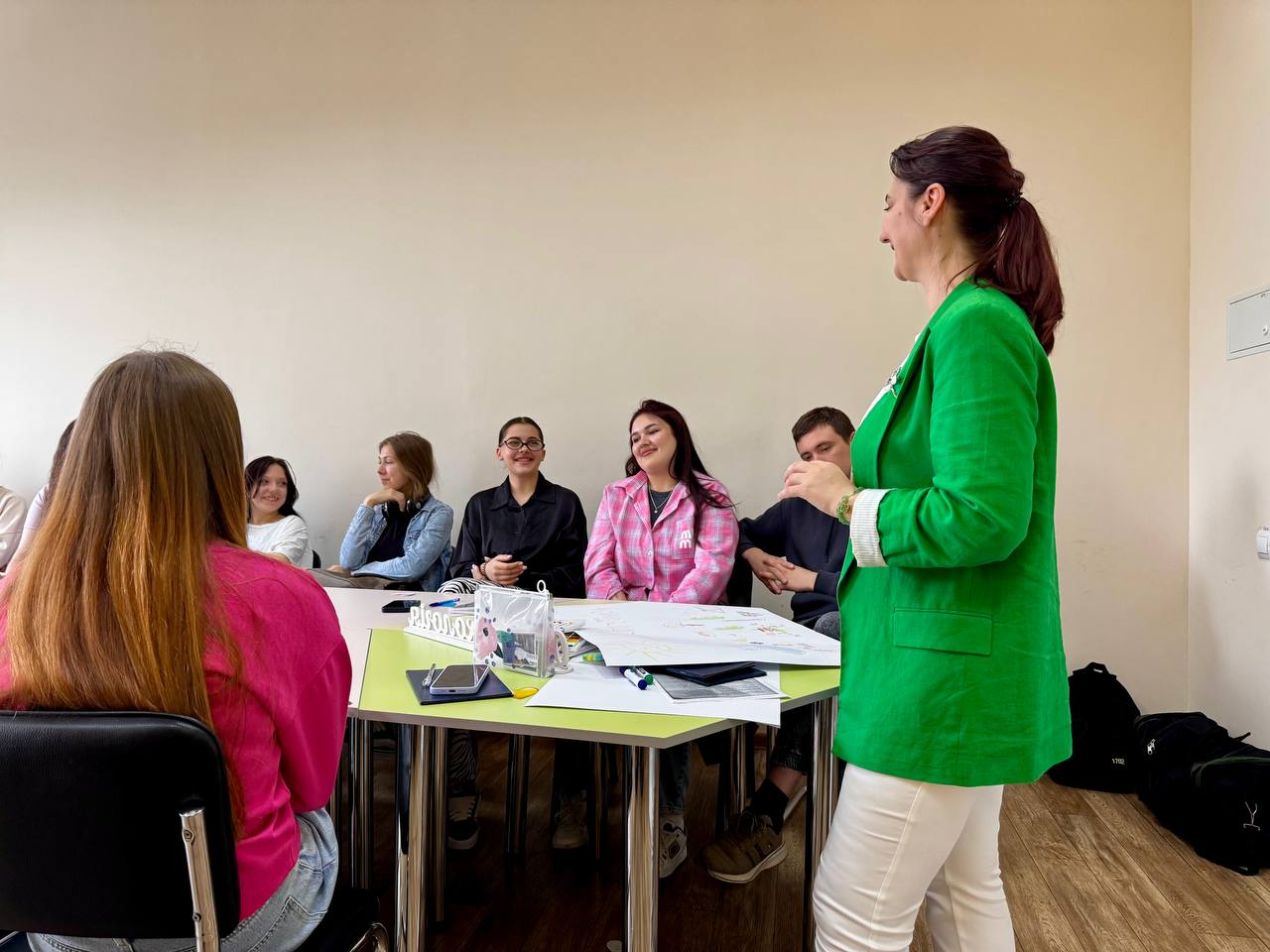
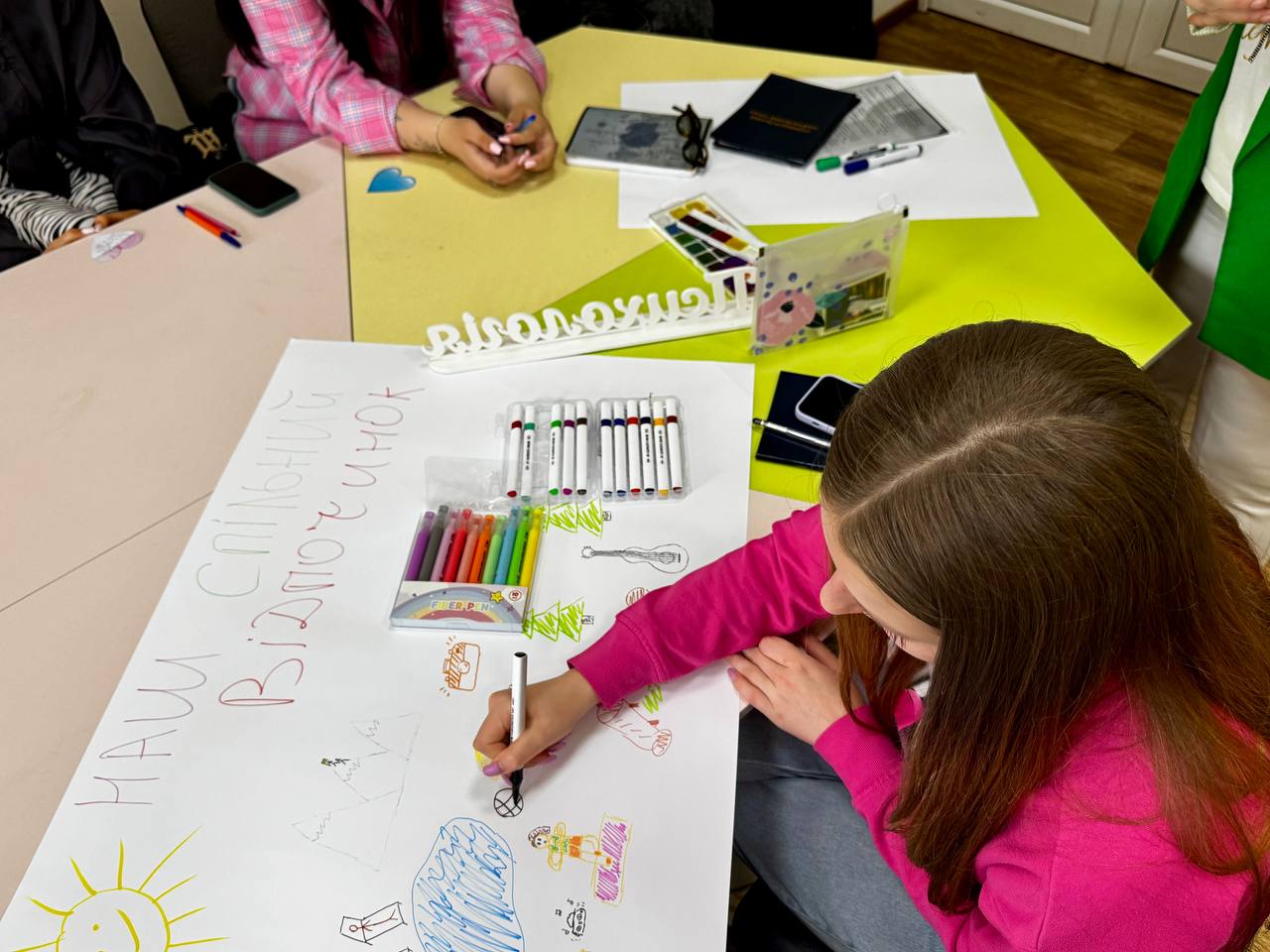
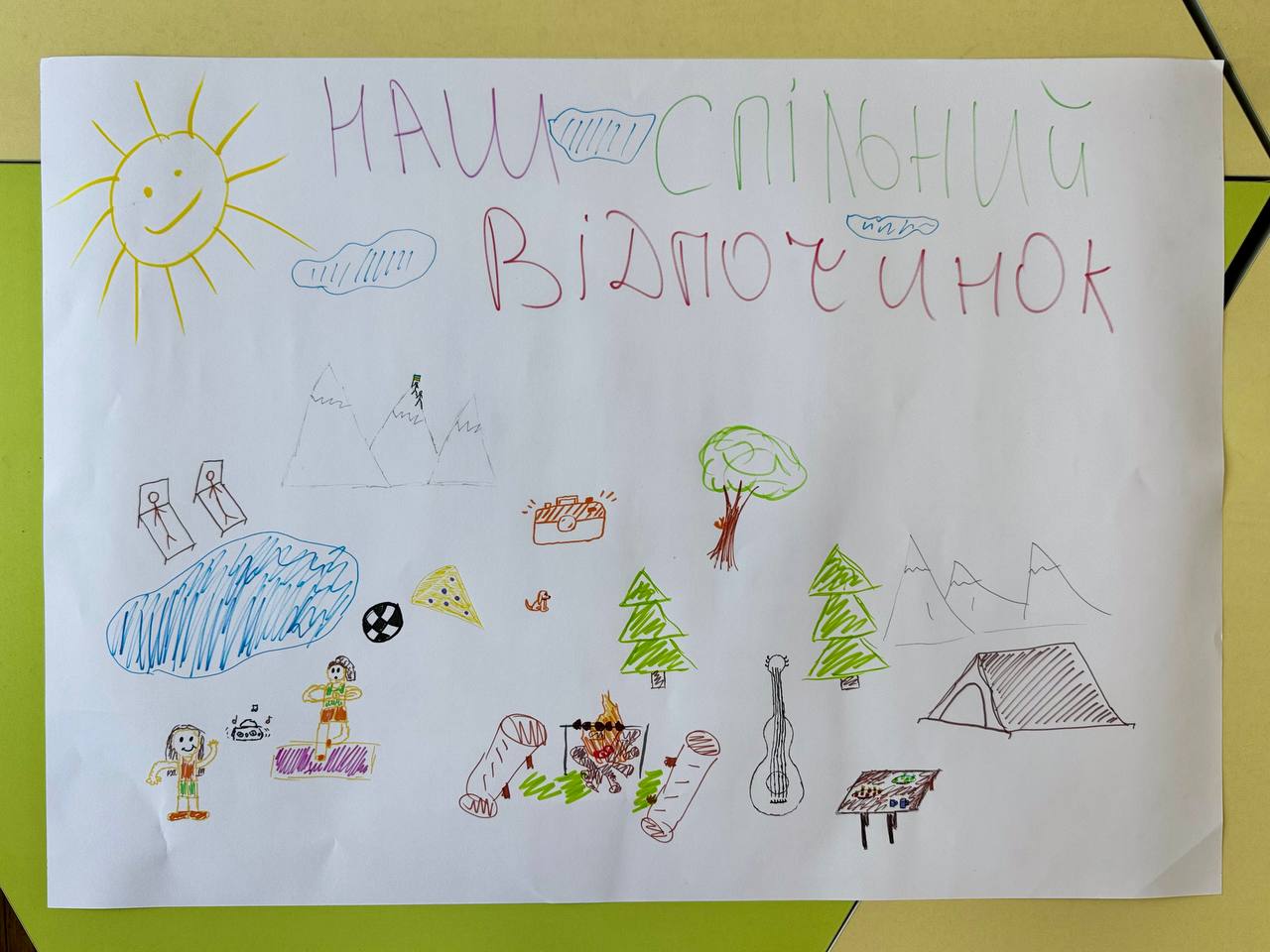
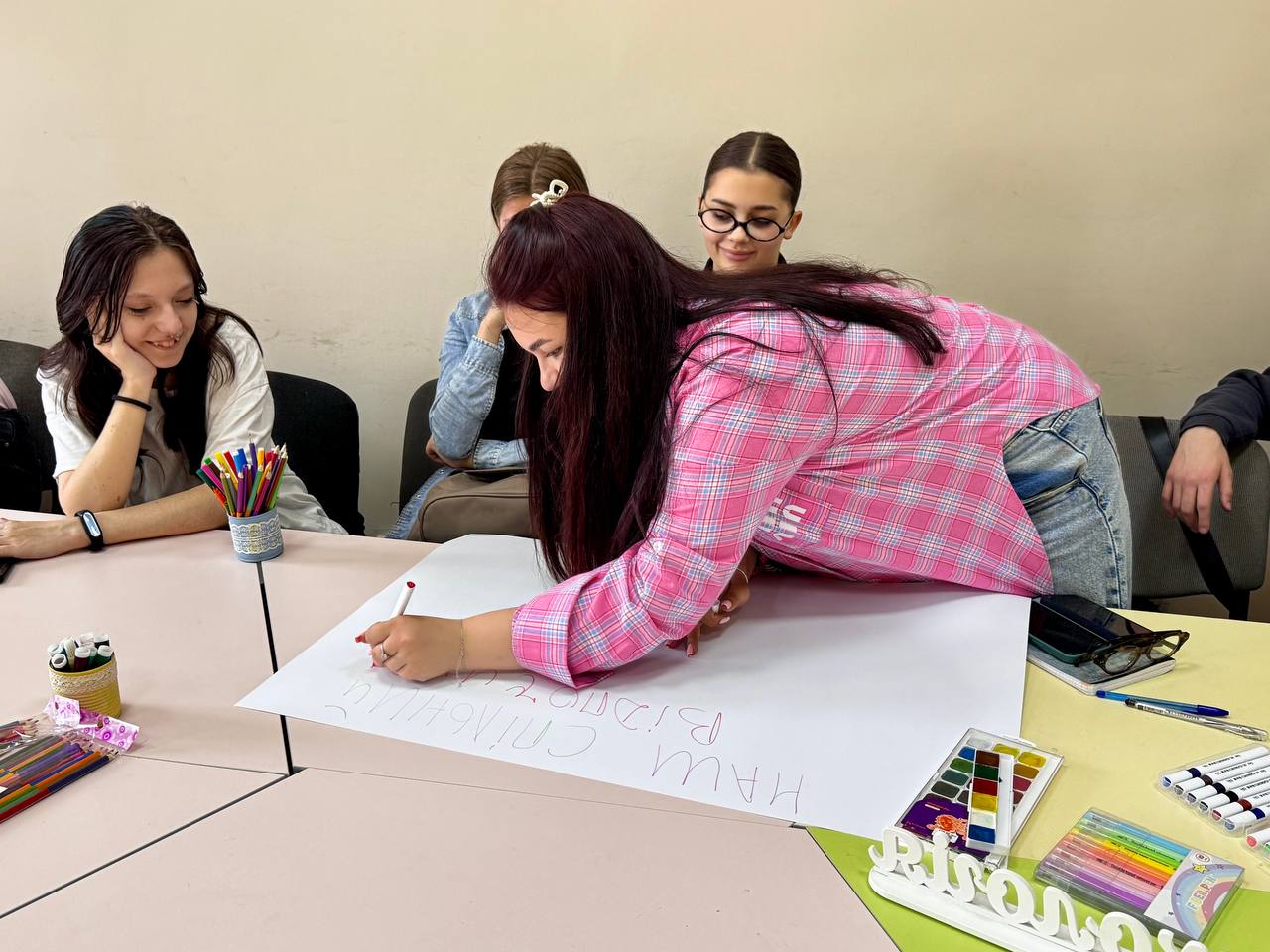
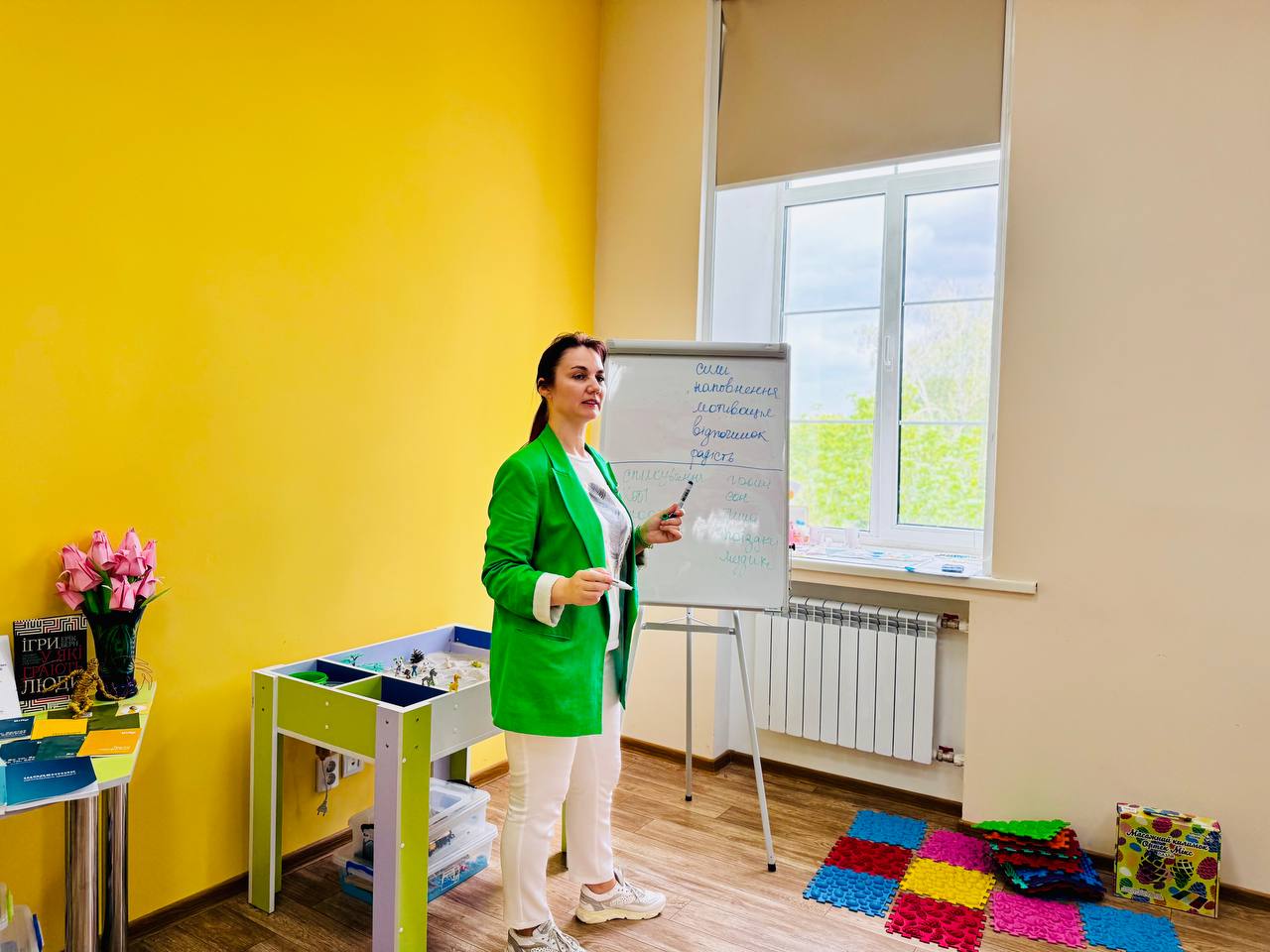
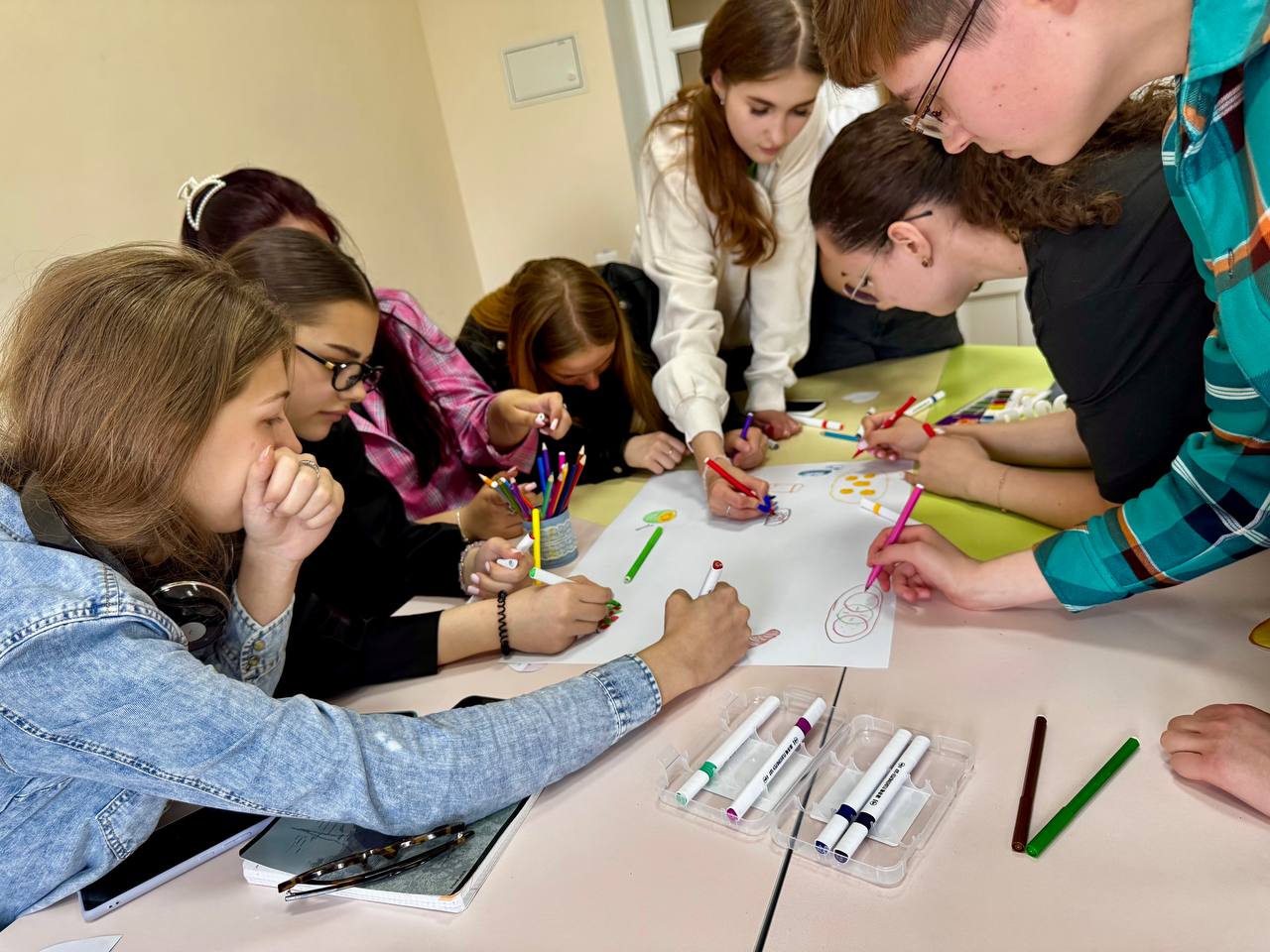
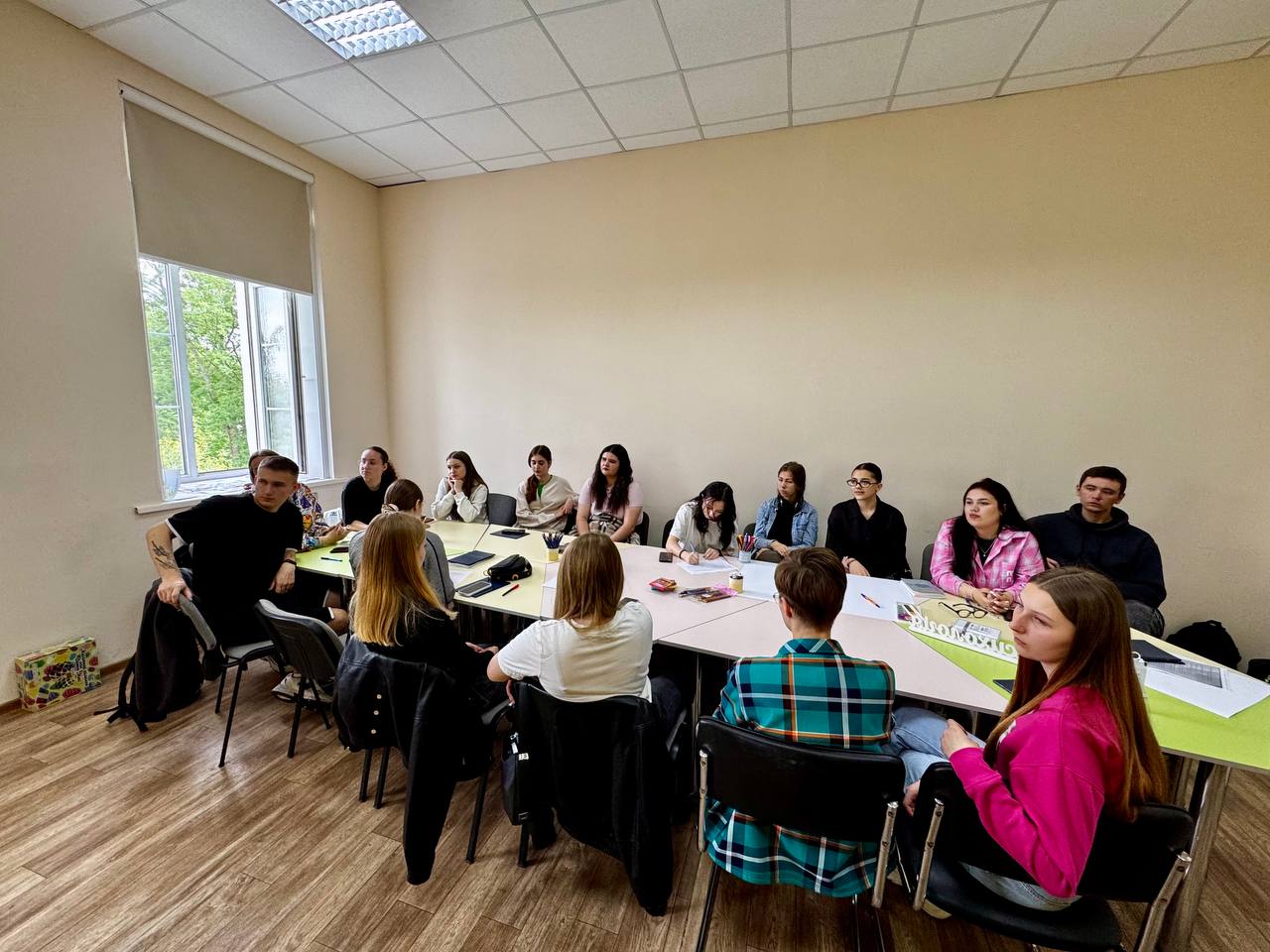
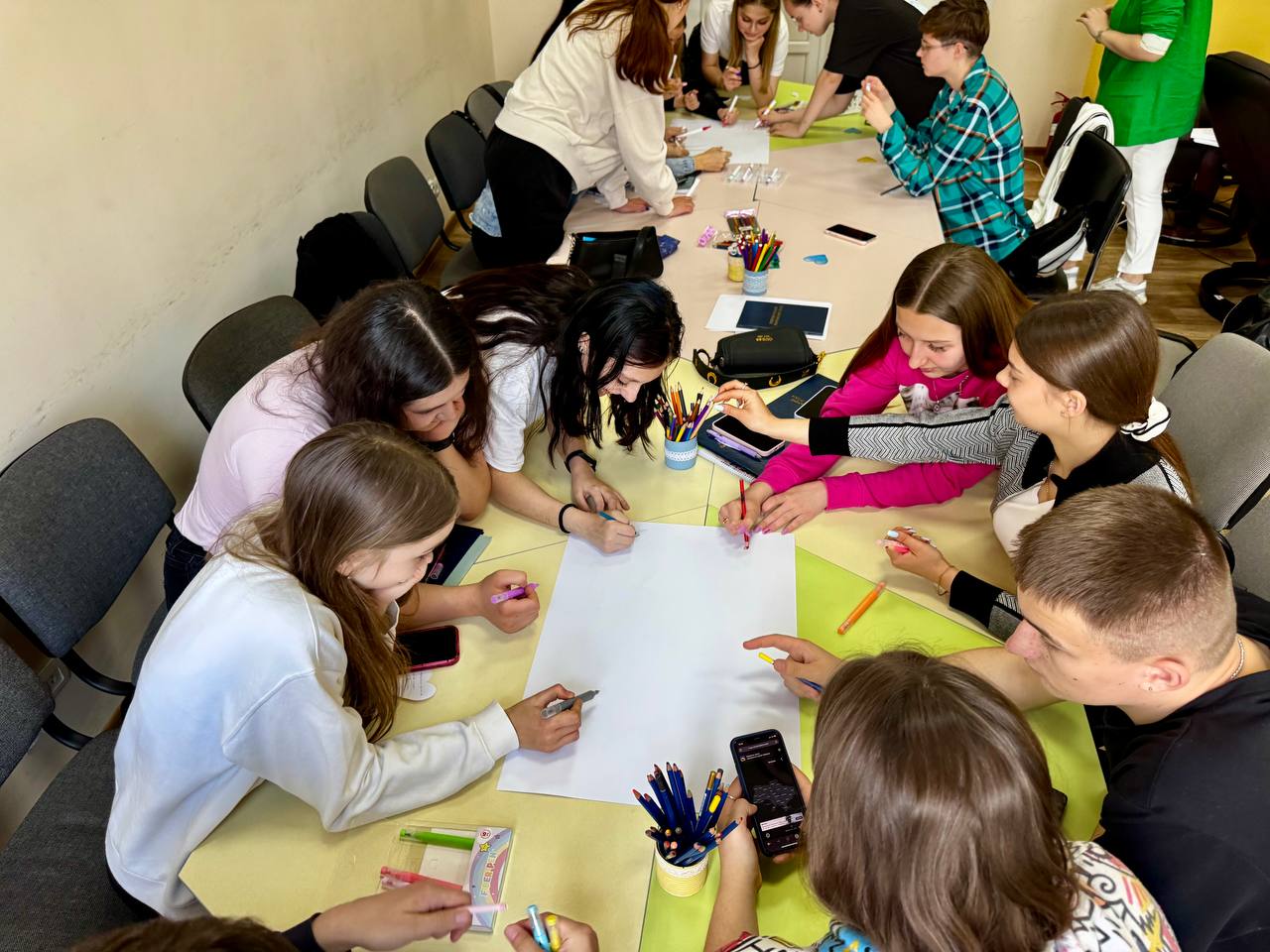
Emotional intelligence is not just a skill or a set of competencies; it is an inner culture of relationships with oneself and the world, based on mindfulness, acceptance, and empathy. And, as this meeting convincingly demonstrated, it can be effectively developed through art, play, music, and other tools that speak to us in the deepest, unconscious language of emotions and images.
The “TRUST” project team of Poltava Polytechnic continues to create a unique space where everyone can not only restore their strength but also learn to live fully in new and complex realities. In this process, creativity and emotional intelligence act not just as tools but as true allies on the path to self-discovery, healing, and building a resilient personality that withstands life’s challenges.
This session marked another meaningful step in the implementation of the Erasmus+ KA220-ADU TRUST project – Trauma of refugees in Europe: An approach through art therapy as a solidarity program for Ukraine war victims (Grant No. 2024-BE01-KA220-ADU-000257527). The project is co-funded by the EU and led by the Centre Neuro Psychiatrique St-Martin from Belgium, in partnership with the National University «Yuri Kondratyuk Poltava Polytechnic» (Ukraine), Greek Carers Network EPIONI (Greece), Fondazione Don Luigi Di Liegro (Italy), Lekama Foundation (Luxembourg), EuroPlural Project (Portugal).
Additionally, Poltava Polytechnic is currently conducting a series of art therapy sessions as part of the TRUST project. These sessions have included symbolic activities such as designing personal coats of arms to represent inner values, sources of strength and hope; associative drawing exercises; the “Relationships” activity aimed at reflecting on personal connections with loved ones, community, and country; discussions around “What does mental health mean to me?”; neurographic drawing; and immersion in body-oriented therapy where movement, dance, and physical expression become key tools for emotional release and recovery, worked with metaphorical associative cards, practiced associative reflection of thoughts on paper and explored the symbolism of the elements of nature and their direct impact on the human psyche and emotional state.
Media Centre of
National University “Yuri Kondratyuk Poltava Polytechnic”
